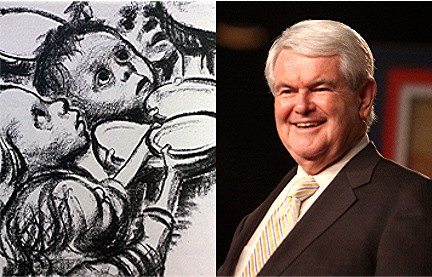
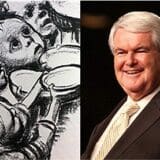
(Editor’s Note: This feature first appeared on Huffington Post.)
With one statement January 5, Newt Gingrich, who constantly reminds voters about his past as a college professor, managed to mangle the facts while resorting to old-fashioned racist stereotypes to gain votes. With his poll numbers sinking, and his presidential campaign desperate, Gingrich told a crowd at a senior citizens center in Plymouth, N.H., “I’m prepared, if the NAACP invites me, I’ll go to their convention and talk about why the African American community should demand paychecks and not be satisfied with food stamps.”
“The fact is, if I become your nominee we will make the key test very simple: Food stamps versus paychecks,” said Gingrich hoping to appeal to conservative white voters in New Hampshire and in upcoming primaries in South Carolina, Florida and other southern states. “Obama is the best food stamp president in American history.


I have danced in more than 50 music videos, with artists such as Michael Jackson, Madonna, Janet Jackson, Lady Gaga, Prince and many, many others.
Every dancer’s worst work experience, I can guarantee you, has happened on a music video. It is a crapshoot for each video we accept. The music video industry is the dance world’s lawless Wild West. That is why we have decided to stand up for ourselves.
It’s About Time music video dancers have a fair union contract. If you see me or my fellow dancers on the Grammys, we are working under a union contract. If you see us in movies, commercials, or Dancing with the Stars, for example, we have a union contract. But when you watch dancers perform in music videos, we are working without a union contract and without basic protections on the job and no hope of insurance or pension benefits.


Recently the Frying Pan ran an interview with DeMaurice Smith, the executive director of the NFL players’ association, in which he responded to people who thought the 2011 players dispute with owners was a “fight between millionaires and billionaires.”
Smith pointed out that a lot of people’s livelihoods depend on professional sports, and lockouts hurt them even more than they hurt players. But there’s a bigger question raised by this issue – and one that highlights a conflict deep at the heart of American cultural beliefs. Who has a moral right (not the legal right or the logistical need, but the moral right) to the proceeds of an enterprise — the people who do the work or the people who front the money? We say we value hard work, but do we really value it more than the right of people who already have money to make even more?
» Read more about: Game On: Leveling Pro Sports’ Playing Fields »
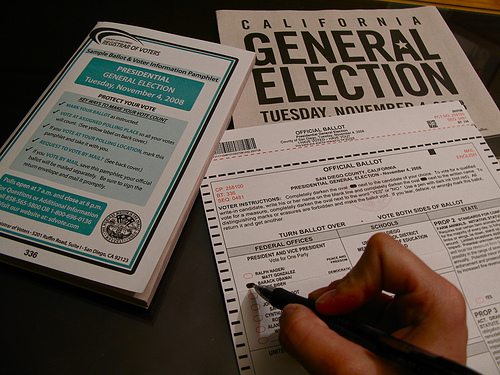

As dismal as things may seem, we Californians actually have a few things to look forward to. The fruits of reform efforts are ripening, with three common-sense laws making their influential debuts.
This new year will see a much-needed shake-up of the State Assembly and Senate. For decades legislators drew their own districts, ones that favored incumbents and decreased voters’ power. Thanks to the California Citizen’s Redistricting Commission created in 2008 and further empowered in 2010, our state finally has fair and honest State Assembly, State Senate and U.S. Congressional districts. Many current representatives find themselves in districts they are unlikely to win next year, and are making decisions to move to “safer” districts. This will pit many voters against Sacramento’s staunch culture of incumbency when party leaders run candidates in areas they haven’t represented in the past.
Voters will see another change at the ballots in the coming year.
» Read more about: State's Game-Changing Election Rules Now in Effect »


A recent report, “Assimilation Tomorrow: How Immigrants Will Integrate by 2030,” published by the Center for American Progress (CAP) is a very important read despite its rather dry title. It is an economic crystal ball that focuses on measuring the ability of immigrants to assimilate into American society. Not surprisingly to those of us who have grown up in immigrant families and/or lean to the progressive side, immigrants have been and are integrating, whether it be through home ownership, naturalization, learning English or other ways of contributing to society’s well-being and need for diversity.
For me, CAP’s study stirred fond thoughts about my own family’s history and our journey to becoming middle-class Americans from the rural depths of Southern China over three generations. A trip I took to China in 2008 showed me the discrepancies between my family’s humble beginnings (chickens running around and dirt roads) and the markers of our success in the U.S.,
» Read more about: Immigrants, Assimilation and the New Economy »


In a recent blog post on the “value” of running government like a business, I had some fun pretending to agree with the mantra that government decisions are best made with a “business orientation.” As a non-profit leader for the past 30 years and a part-time public official for nearly 10, I have heard this “run government like a business” adage again and again, as though it were a biblical truth. Government is best run without emotion, I have been told, with a view toward gaining “efficiencies” and getting the job done as effectively as possible. Pay what’s necessary to get the “talent” at the top to get the job done and make decisions about “cutting” — and “saving” when it comes to everyone and everything else without regard to any sense of “morality” or emotion.
Of course it’s a really bad idea to run government like a gas station or bank —
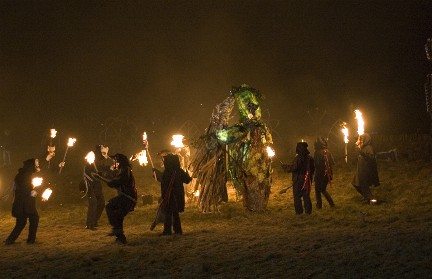

Even before Santa Monica became infamous for the atheists taking over most of the holiday kiosks at Palisades Park, I thought the season was bigger than merely Christmas. After all, December 25 marked the turning of the sun for the Romans – what they called Saturnalia. The whole season of festivals hinges on Solstice, not a baby’s birth – although a pregnant girl giving birth in a stable makes for a great story.
So my wife Susan and I think the season begins with Halloween and ends with what Americans call Ground Hog Day, an entire quarter of the calendar in which the daylight shortens and the nights lengthen in the northern hemisphere. The experience was so traumatic for our forbearers that they clustered a bunch of holy days around it.
Halloween, or Samhain in the ancient calendar, marked the narrowing of the veil between the world of light and the world of darkness – so the spirits could slip across more easily.


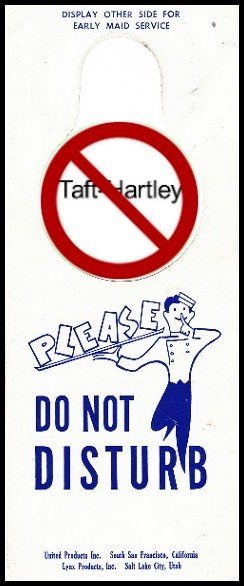 “So, would you like to move into management?”
“So, would you like to move into management?”
I’ve been asked this question various times during my employment with the Hyatt Andaz hotel over the past few years. The last manager who asked me this had deep bags under her eyes. She’d been working eight days in a row and was then on her 12th hour that day. She told me she needed a cigarette, — which was odd, considering she didn’t smoke.
I laughed. I told her I’d be a terrible candidate for management because I enjoy my family time. I like seeing my wife. I enjoy eight-hour workdays. I enjoy the fact that I occasionally get to do menial household tasks like laundry and dishes. I love the fact that once I’m off the clock, I’m truly off the clock.
She blinked twice, yawned and told me I’d be a terrible manager.
I have always gotten along with my supervisors,


Craigslist founder Craig Newmark recently sent out a call for bloggers to express their hopes for 2012. On December 26 Newmark announced on his own blog that the Frying Pan News’ Jim Lair Beard was included in a group of 16 writers whose ideas were especially noteworthy. (16 People and Organizations Changing the World in 2012.)
Jim’s post, Change Will Not Be Downloaded, spoke of the need for progressives to physically get out into the streets and to knock on doors to advance change in the coming year. He’s in good company on Newmark’s list – his 15 colleagues include MoveOn co-founder Joan Blades, Surfrider Foundation CEO Jim Moriarity and David B. Crowley, President and Founder of SCI Social Capital Inc.
You can read Jim’s latest post, Homicide and Hospitality, in today’s Frying Pan. A restaurant server at the Andaz Hyatt hotel in West Hollywood,
» Read more about: Frying Pan News’ Jim Beard Recognized for Blog »


I’m from the Midwest. More specifically, I’m from the mitten state (and I don’t mean Wisconsin!). I grew up in a pretty stereotypical hard-working, blue-collar community. Many of my family members and friends’ parents worked for the Big Three. We had a pretty good life. Everyone went on vacations, we all had multiple cars per family, we had someone to mow the lawns in the summer and shovel the driveways in the winter. Life was good for Michiganders who were working for General Motors or one of their many suppliers. What could go wrong, right?
Then it all unraveled. I’ve watched Michigan, and especially the town I grew up in, go from middle class to low income in less than 10 years. I’ve seen the ranks of the homeless population grow to include large numbers of women and children.
» Read more about: Can Tourism Deliver the Good Life for Angelenos? »